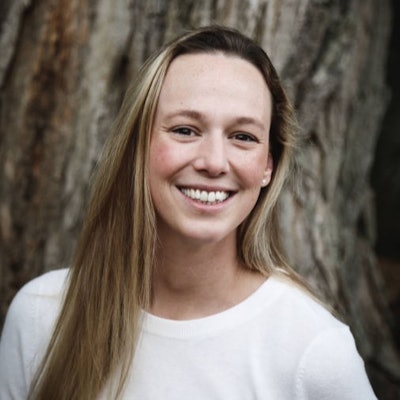Racial and gender inequities still plague the field of educational measurement, from professional rank to salary, across academia, industry, and leadership roles.
Those are the findings of a new report supported by the American Educational Research Association (AERA), the National Council on Measurement in Education (NCME), and Women in Measurement (WIM). These organizations provide membership and community for qualitative and quantitative researchers, and WIM focuses on improving gender and racial equity within the field.
 Dr. Susan Lyons, executive director of WIM.
Dr. Susan Lyons, executive director of WIM.
“Our community members regularly share the challenges they have faced,” said Dr. Susan Lyons, executive director of WIM and one of the report's authors. “This study, for us, was about seeking to understand the scale of the gender and race issues we face as a field and to document the disparities we see as baseline data to help track our progress towards more equitable work environments over time.”
The assessment, said Lyons, highlights the “tangible differences” of salaries and positions, finding that white men receive the highest salaries and occupy the most senior positions. The report also studied how diversity, equity, inclusion (DEI), and anti-discrimination is perceived in the workplace.
“When we see large disparities across racial and gender groups in how likely people are to agree to statements like ‘my workplace treats all employees fairly,’ we reveal not only that some people are being treated unfairly, but we reveal that there is a large proportion of people that simply do not see that some are being treated unfairly,” said Lyons.
The authors of the report have several recommendations for changes that would improve equity, including employer self-audits of the salaries of their staff, the public creation of DEI strategic plans, investment in anti-bias training, a transparent communication of how DEI goals will be enacted, and gathering feedback from employees.
 Dr. Michael Walker, past president of NCME.
Dr. Michael Walker, past president of NCME.
“In this case, the split had everything to do with sample size. As soon as you break down things by intersections, samples get smaller, and it’s harder to see anything,” said Walker. “When you do research like this, you want to be able to point to specific subcultures, but it’s hard to get sample sizes large enough to actually see unless you purposely drill down on that subculture. And these are voluntary surveys, so you’re at the whim of who decides to answer your questions.”
Walker said he hopes future studies can include more representation to offer that kind of detailed disaggregation, including allowing for those with more expansive genders. For Dr. Michael Rodriguez, dean and professor of the College of Education and Human Development at University of Minnesota Twin Cities, the simplified presentation of white and persons of color was not ideal, but where the quantitative numbers might be missing, the qualitative quotations included in the report made a big impression.
One woman told the survey that there was a disconnect in her workplace between rhetoric that supported DEI and the actions taken to enforce DEI. “They promote [DEI] and say it but they don’t live it,” she wrote. One woman of color wrote, “There’s shallow talk of DEI but the systemic barriers are not prioritized because it’s uncomfortable. We gravitate toward color-blindness and approaches that value equality over equity.”
Rodriguez said he hopes to learn more about these written responses, particularly as they relate to leadership positions both in academia and the industry.
 Dr. Michael Rodriguez, dean and professor of the College of Education and Human Development at University of Minnesota Twin Cities.
Dr. Michael Rodriguez, dean and professor of the College of Education and Human Development at University of Minnesota Twin Cities.
Dr. Penny Pasque, professor of educational studies and program coordinator for ESQUAL (educational qualitative research) at The Ohio State University, said the report was timely and important, particularly considering the current political climate where DEI is under attack.
“To me, these reports are paramount because they provide the empirical evidence to show higher ed leaders and policy makers that inequities across race and gender exist, and they continue to persist,” said Pasque. “The question becomes, what are the levers we need to pull as a system, when we know that the work we’re doing continues to reify the glass ceiling and sticky floors?
Liann Herder can be reached at [email protected].



















